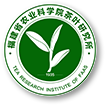Abstract:
Objective Effects of green tea and aged Liupao tea to alleviate dextran sulfate sodium (DSS)-induced colitis in mice were examined to determine the potential of using the teas as food supplements to treat or prevent the intestinal ailment in human.
Method Forty SPF grade, 6-7 weeks old male C57BL/6JGpt mice were randomly divided into control (CK), DSS-induced colitis (DSSIC), green tea extract treatment (DSS+GT), and aged Liupao tea extract treatment (DSS+LP) groups with 10 mice in each group. CK was provided distilled water for drinking, while the DSS+GT and DSS+LP given solutions containing 3% of DSS and 450 mg·kg−1 of GT and LP, respectively. In the final 2d before execution, all mice had only distilled water for drinking. Morphology, inflammatory factors, protein structure, and microflora of the dissected colons were examined and analyzed by means of physiological indexes, H&E and AB-PAS staining, ELISA, Fourier transform infrared (FTIR) spectroscopy, and 16S detection.
Result Compared with Control, the body weight of DSS treated mice decreased obviously (from 25.6 g to 15.6 g). After DSS+LP and DSS+GT intervention, the body weight recovered to 26.6 g and 26.2 g. Meanwile, the amount of water and diet tended to the Control level. The results showed that green tea and aged Liubao tea had positive effects on weight loss, abnormal diet and drinking water in mice. The colonic length of DSS+LP was more similar to that of Control group. The length of colon of the mice under DSS+LP was closer to that of the healthy counterparts under CK than those in the other groups. ELISA showed that DSS+GT and DSS+LP retarded the secretion of inflammatory factors, while FTIR indicated that DSS+LP reduced the relative content of β-folding structure from 16.10% (CK) to 12.66%. And DSS+LP significantly downregulated the relative abundance of intestinal Escherichia but upregulated that of Barnesiella.
Conclusion Both GT and LP could alleviate DSS-induced colitis and alter the intestinal microbiome in mice. The fermentation in processing Liubao tea might generate beneficial bioactive compounds making it superior to green tea in that respect.




 下载:
下载: